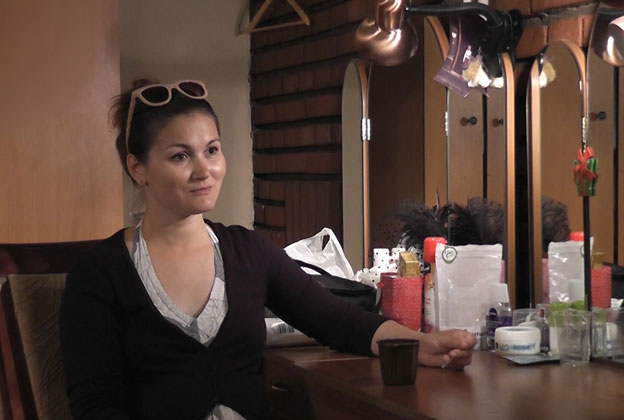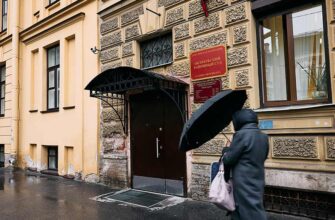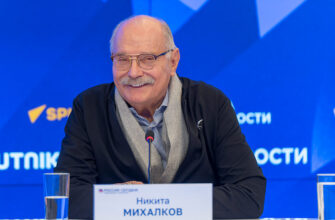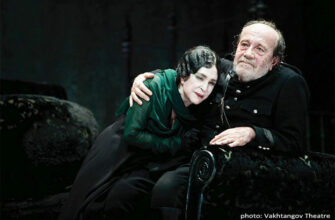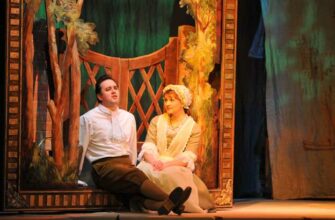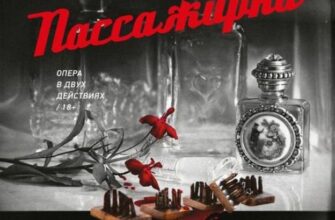The play “Running”, based on the play by M. A. Bulgakov, was first staged in December 2015. Since then it became one of the favorite productions of the Theater “Commonwealth Taganka Actors”. Director Maria Fedosova unfolds a modern, entertaining and original picture.
The theater showed respect for the work of M. A. Bulgakov and represented “Running” in a unique, but not distorted manner. On the stage of “Commonwealth” we see the work as it was created by Bulgakov, in terms of realism of dreams, and in terms of the philosophical and psychological context of the work. At the same time, the creative interpretation of works has added vitality and volume. The play is very deep, his scenes are kept in the memory for a long time. Main emotion is empathy for heroes, without judgment, without stamps.
Many of Bulgakov’s works contain fantastic elements that give the story a context and background, without destroying reality. Bulgakov used the fantasies in order to pass through censorship, to describe the civil war, the NEP and other contemporary events, moving away from the straightforward assessment of reality. “Running” are eight dreams of a white officer. Nevertheless, “Running” has been banned with personal involvement of Stalin (“attempt to justify “white army”), it was not allowed to be staged during the life of the writer. “Running” is based on real events, as the prototype has historical figures, including Baron Wrangel. Bulgakov himself was a member of the White movement and a witness to his defeat. This allowed the writer to reach the historical and emotional authenticity of the image.
Mikhail Bulgakov (1891-1940) was born in the family of Professor of Kiev theological Academy, A. Bulgakov and teacher V. Bulgakova, the daughter of Russian orthodox Archpriest. After graduating from Kiev University as a physician-venereologist (siphilitica), the writer became a doctor in front-line hospitals of the South-Western front, then a country doctor. During the Civil war he was mobilized into the Volunteer army of Denikin. Since 1921 the writer began to work in Newspapers and magazines. Since 1925, after he publishes his first novel “the White guard”, he launched literary work, prose and drama
The viewer of the play is voyaging during the Civil war. In front of the audience there are people, events and countries. Each scene is art pattern, multi-dimensional and vivid. The image of God, saved by the heroes through the tragic events and lives, the fragility of their consciousness and bruised psyche. “Stay in peace who has finished run”… Director Maria Fedosova chose the second Bulgakov’s final, which transformed Khludov, returned the heroes to their Homeland.
About how the show was conceived and created, we asked to speak to the director Mary Fedosova. We were struck by what a monumental, powerful the performance was created by a young and delicate woman, charming and modest.
You can see a video interview on our Youtube channel, but below we offer You to get acquainted with a brief text version.
E Vesti: Maria, thank you for agreeing to tell us about Your production “Running”. Why you had a plan to make a production “Run” in the Commonwealth of Taganka Actors?
Mary Fedosova: I was looking for a play… and my friend told me about “Running”. And when I started to read it, I was immediately involved in topic, involved in the atmosphere. I saw, I felt and everything inside me started to pound. I thought – I did not read with slumber for a long time…
E Vesti: Your author’s reading, in my opinion, is much closer to Bulgakov than other contemporary production. What caused the reading, and distance from the fashion on Bulgakov’s fiction?
Mary Fedosova: I want to tell You that banner, and the movement, and the search was a dream… I actually started from dreams. I just thought that the dreams are different. And sometimes they are completely real. In this play, too, dreams are different, as it happens for humans…
E Vesti: I got the impression that You value historical texture of this product as well as the spiritual, and the drama of human relationships. And at the same time, You don’t take one side or another?
Mary Fedosova: Thank you that You say it. Maybe someone will seem strange, I do not believe that it is necessary to give answers. It is necessary to ask questions in the theater, because the answers are different. It is unlikely that someone can choose the way of the cross of a man who deliberately goes back. But we chose this ending…
E Vesti: The transition between dreams, scenes are done very gently, the final is relatively soft, devoid of nerve a tragedy. Is Your softness means it is female view?
Mary Fedosova: Plus the pregnancy issue (laughs). No, this is my fundamental vision. Well, maybe someone might call it the female view. I just think at the end of the tunnel must be light…
E Vesti: Tell me, please, who do you think can get the most pleasure from watching the play? Young? People of Mature age? The level of education? Schoolchildren? You have a vision for the group that You personally primarily would like to see?
Mary Fedosova: I’d love to see as many theatre audience of regulars, which I have already spoken. The audience is this generally from 25 to 60 years old, it works, gets tired, but likes to think and to laugh. Women in beautiful dresses, men who smell of brandy in the intermission… the Audience that is ready to get something, something to absorb and to compare performance with other productions, to discuss..
